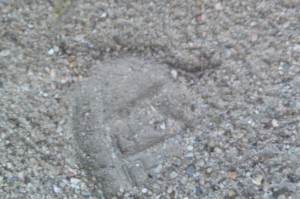 Follow this link to see the question key and results of the THATCamp 2012 Zen Scavenger Hunt. Assembly and presentations took place at 3:30 today. The slide show is rough but the images are cool, and we had a blast doing it.
Follow this link to see the question key and results of the THATCamp 2012 Zen Scavenger Hunt. Assembly and presentations took place at 3:30 today. The slide show is rough but the images are cool, and we had a blast doing it.
Archive for the ‘Crowdsourcing’ Category
-
Hiding in Plain Sight
0 -
Public humanities and the digital humanities
Hailing as I originally do from the museum and library world, I have a particular interest in the more outward-facing aspects of the humanities–and in the digital humanities, the aspects of the field that might particularly be considered “public” or “open.” I’d love to get into a conversation about this stuff. Maybe we can take a look at how audiences are examined in digital projects, or talk about the degree to which digital humanities projects are (or aren’t) by their very nature forms of public scholarship. What makes a scholarly effort “public” in the first place, and is there anything particular to digital work that supports or undermines that idea? Maybe we can talk about crowdsourcing and its role in digital research and scholarship. In short, if the phrase “public humanities” catches your attention, I’d love to chat.
-
19 Apr
Category
Distributed Scholarly Collaboration
Now that I’m out of the application woods, I’d love to have a conversation about the more difficult DH task I’ve been working on: how to form, organize, and motivate distributed scholarly platforms, like the one I’m contemplating under the “Modernist Letters Project.” I think building the infrastructure for quicker, more transparent, open-source scholarly knowledge creation and review will be one of the major projects for the next decade, as it has already been in the case of NINES. And I tend to think that the new platforms that are successful will be both field and object-specific (thus, in my field, the Modernist Journals Project, now Modernist Versions Project, etc.).
I’ll work through today referencing and organizing this problem, but it seems to me that first of all this should be approached by examining the following questions: I’d appreciate others’ thoughts about this, or sources to look at.
A. What has worked (NINES, Whitman Archive) and why?
B. What hasn’t been successful?
C. What sorts of contracts for collaboration are most succesful? What organizational structures, forms? (I know Lynn Siemens has written a good deal on this.)
D. How does the work get incentivized? How credited? What are good models for developing pedagogical units, etc (an interest of one of my collaborators)?
E. How do we include the non-digital (native) scholars in the field? What sorts of ongoing mechanisms for peer-review could be included?
I’ll come back and reference this a bit later, as well, once I’ve gone through some of the available material. Folks interested in participating in the Modernist Letters Project are particularly welcome to get involved here, of course.
-
News in the Classroom / Dynamic Syllabi
Given all the tools most of us use to manage our daily reading habits, I’d like to hear how this could be used to the classroom. Not every class wants to engage with the news of the day, but I can imagine many advantages to having students engage with very recent events. Since we obviously can’t build these into a syllabus before hand, I’m wondering if anyone has experience (or wants to brainstorm about) using RSS feeds, or something else, in a class: how do we keep our students and ourselves up to date on recent events? How could we ensure we all have the same focus? Or the same information? Or usefully contrasting information (can some students watch Fox, some the Daily Show)?
-
THATCamp for Kids
We are attending with our 13-year-old, who loves writing and digital photography. I’d like to know who else is bringing kids this year, and how we might engage them? Because of Mona’s schedule, we will be late or no-show (sadly) at the Friday sessions. Maybe we can meet up with other families w/kids at the dinner that evening?
I am a writer and writing teacher, and would be happy to host a creative writing workshop in the afternoon for any kids who want to get together to write. In particular (or instead), I am really intrigued by the possibilities for the Zen Scavenger Hunt described here. That seems like it’d be great for any age participant. I don’t know the UVa campus all that well, so I’d like to run it with someone who is more familiar with the surroundings. It is the kind of thing the kids and other participants can engage in all day (since there is no list until later), then gather in the afternoon or early evening before dinner to compare notes.
We could run this as a regular scavenger hunt instead, with a fairly general list that stimulates creativity (“an object that fits in your hand,” “something red,” “something that was once alive,”) and/or have kids document with cameras, pen & paper, maps, and phones in case there is concern about collecting actual things (might get out of hand :-)…Would love to hear thoughts about how to put something together that is fun and flexible for families and younger participants to do.

